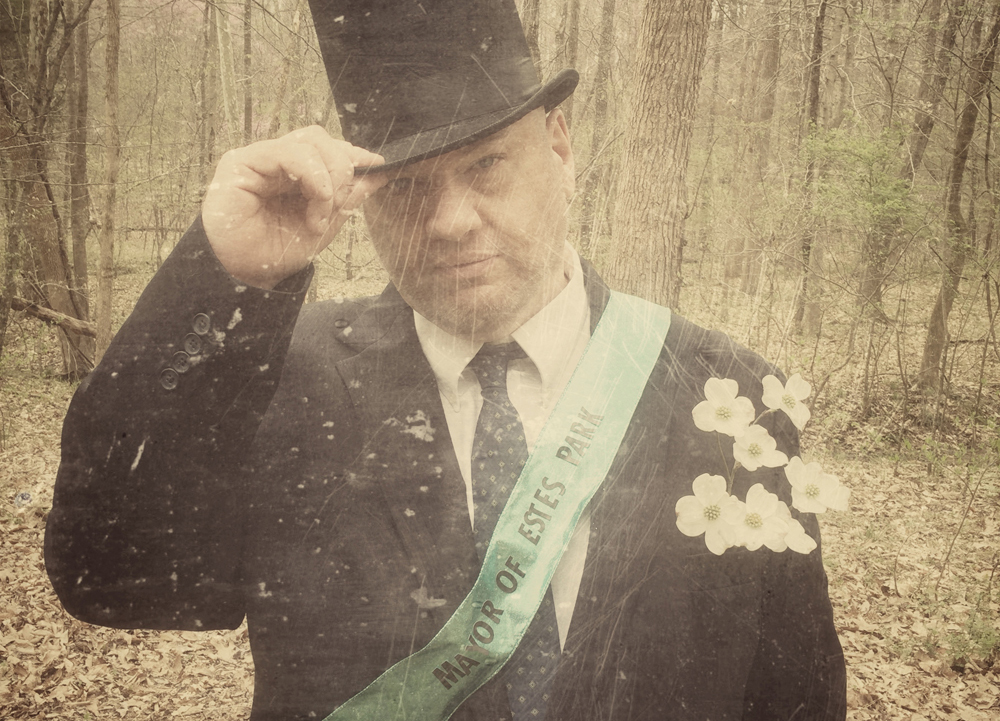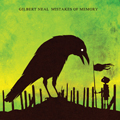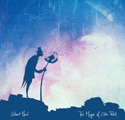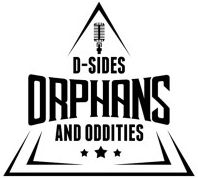‘I’m Dean Jones’: 5 Questions about Narrative Albums with Gilbert Neal

Wampus sat down with singer-songwriter-multi-instrumentalist Gilbert Neal to talk about the besieged but enduring art form of the narrative album.
—
[Wampus]: Pop music today is focused on singles, almost like a throwback to the early days of rock ’n’ roll. But many artists continue to work in the album format, telling stories that are larger than singles can convey. How important is it that albums stay prominent?
 [Gilbert Neal]: I think it’s extremely important to keep the art form alive, and that’s what it is. I think it’s like telling a joke as opposed to writing a play in that telling a joke can be done by anyone, and sometimes the worse you do it the better reaction you get. But if you write a play, you have to have an arc and characters and some scenarios that make sense in a larger context. If not, it can bore or insult. Some terrible singles have been released that did pretty well in social media and on video, etc., but the artists who recorded those one-offs might be wise not to ask their audience to follow them along on a whole album of that stuff. And I know it and the producers know it, because they are usually pretty well paid to know it. When I hear an album like Close to the Edge by Yes, I know that it wasn’t intended as a concept album, but to me it’s a concept album and the concept is five suddenly very rich musicians smoking all the marijuana they can find and taking every single riff they can conceive and putting it in a song. It just so happens that at that point, all the riffs were good. I like making concept records because it’s hard. I think people make singles more often these days because resources can be committed to the pushing part. I guess the smaller the rock…
[Gilbert Neal]: I think it’s extremely important to keep the art form alive, and that’s what it is. I think it’s like telling a joke as opposed to writing a play in that telling a joke can be done by anyone, and sometimes the worse you do it the better reaction you get. But if you write a play, you have to have an arc and characters and some scenarios that make sense in a larger context. If not, it can bore or insult. Some terrible singles have been released that did pretty well in social media and on video, etc., but the artists who recorded those one-offs might be wise not to ask their audience to follow them along on a whole album of that stuff. And I know it and the producers know it, because they are usually pretty well paid to know it. When I hear an album like Close to the Edge by Yes, I know that it wasn’t intended as a concept album, but to me it’s a concept album and the concept is five suddenly very rich musicians smoking all the marijuana they can find and taking every single riff they can conceive and putting it in a song. It just so happens that at that point, all the riffs were good. I like making concept records because it’s hard. I think people make singles more often these days because resources can be committed to the pushing part. I guess the smaller the rock…
[Wampus]: Artists are introduced now through social media, which favors quick clips — catchy singles or even just the choruses of catchy singles — instead of extended narratives. Do you think the audience remains hungry for broader stories, or is the shift to bite-sized content here to stay?
[Gilbert Neal]: It seems like everything goes in cycles. I think my demographic can sit and be patient and listen to what an artist is trying to say over a span of 40-50 minutes, but maybe there’s something to be said for brevity. And the irony is that the market seems to push artists that are incapable of telling those 40-to-50-minute stories, because they’ve been told not to from the time they decided to be in the music business. So the people that do tell the stories and know the experience and the grind and the wonder of connecting all these various pieces are usually pumping gas somewhere.
[Wampus]: You’ve released six narrative albums, the last two with Wampus. You say you “treat them all like musicals,” with each one telling a unique story. How much of the story do you know when you start writing? Do you plan it in advance? Or discover it as you go?
 [Gilbert Neal]: While it’s not a linear story that takes characters from one point to another until the end where they inevitably die, I always know from the start what I want the main feel to be and what the ”space” is. But the thing that more or less guides every record is that arc of big glossy opening number, usually the ringer is song number two or song number three, and then I throw a good ballad in there right around that point. And then track five or track six is usually some sort of resigned epiphany or a summation of what the first few tracks have wrought. And then I do it again on side two because I always imagine these things on vinyl, even though none of them are and probably never will be… My album coming out next year is basically Mistakes of Memory II. All of it could have been one big thing, except the Russian motif.
[Gilbert Neal]: While it’s not a linear story that takes characters from one point to another until the end where they inevitably die, I always know from the start what I want the main feel to be and what the ”space” is. But the thing that more or less guides every record is that arc of big glossy opening number, usually the ringer is song number two or song number three, and then I throw a good ballad in there right around that point. And then track five or track six is usually some sort of resigned epiphany or a summation of what the first few tracks have wrought. And then I do it again on side two because I always imagine these things on vinyl, even though none of them are and probably never will be… My album coming out next year is basically Mistakes of Memory II. All of it could have been one big thing, except the Russian motif.
[Wampus]: Do you find it challenging to take the audience past individual songs to narrative sequences of songs? Do listeners stick with you throughout the story, or are they more likely to focus on particular songs?
[Gilbert Neal]: The latter. I’ve never had a person connect the dots. Except (Wampus founder) MD.
[Wampus]: Which artists who create narrative albums are your touchstones? What are your favorite albums that tell full-blown stories? How would you describe your ideal musical format for storytelling?
 [Gilbert Neal]: Pink Floyd is Number One. The Wall is, to me, the only true rock opera. Roger Waters on that record is like Pavarotti. I don’t know of any singers that extended themselves so much on one project. I say he should take 100 percent credit for everything on that record and everything on the tours because he’s doing basically what we ask orchestras to do with Mozart and Brahms. And he did it dragging those other musicians around with him. I don’t think anyone who’s ever led a band would begrudge him all the glory. It’s a crowning achievement in Western music, and I still don’t think he gets enough credit.
[Gilbert Neal]: Pink Floyd is Number One. The Wall is, to me, the only true rock opera. Roger Waters on that record is like Pavarotti. I don’t know of any singers that extended themselves so much on one project. I say he should take 100 percent credit for everything on that record and everything on the tours because he’s doing basically what we ask orchestras to do with Mozart and Brahms. And he did it dragging those other musicians around with him. I don’t think anyone who’s ever led a band would begrudge him all the glory. It’s a crowning achievement in Western music, and I still don’t think he gets enough credit.
I try to ape Broadway musicals in form and construction. Whenever I start a project, I think about “company,” which is basically a series of vignettes wrapped around Dean Jones. I’m Dean Jones.
—
Gilbert Neal’s two most recent albums, ‘The Mayor of Estes Park’ and ‘Mistakes of Memory,’ are available direct from Wampus and at other sunny spots. A new album is slated for 2022.

Gilbert also hosts the radio show “D-Sides, Orphans, and Oddities” — “everything from the failures of the famous to the fabled by the fameless” — every Saturday night on WHUP-FM, 104.7, in Hillsborough, North Carolina. “Nothing is out of bounds,” Gilbert says. “Rock, soul, disco, song-poems, artist features, live performances, and interviews are all tied together by my ill-placed reverence for pop history. There’s some amazing music you’ve never heard,” he adds, “as well as some terrible stuff that no one asked for. It’s all a rich tapestry.” The show is also available as a podcast from Spotify or Apple Podcasts.

Leave a Reply